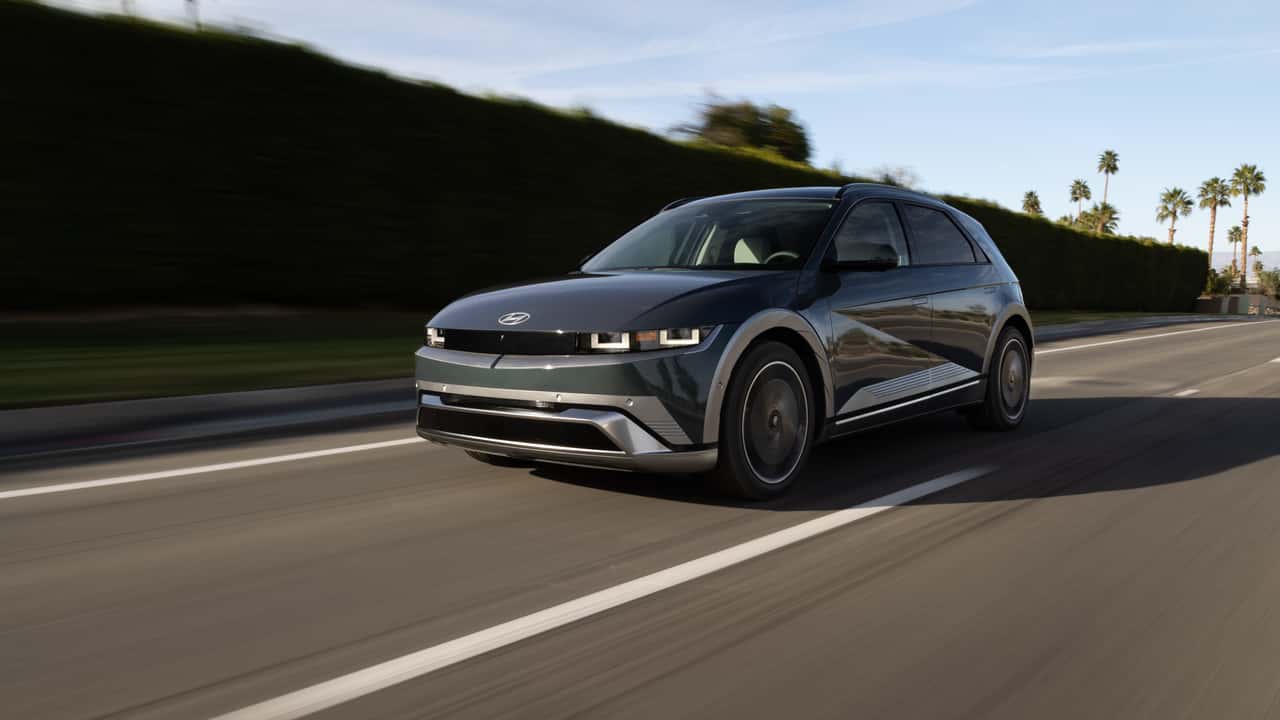The car manufacturer reportedly formed a dedicated “special team” to start working on producing its own batteries.
- According to local news sources from South Korea, Hyundai has formed a dedicated task force consisting of senior executives and leading engineers to lead the internal development of batteries.
- The project apparently began following BYD’s demonstration of its megawatt charging system in China during March.
- Producing batteries internally offers multiple benefits regarding software compatibility and expenses, yet it necessitates substantial technical and manufacturing know-how.
The Hyundai Motor Group is planning to develop and manufacture its own electric vehicle battery cells amid growing concerns of falling behind in the battery race, according to a local news report from South Korea. The decision was reportedly made after Chinese EV and battery giant BYD showcased its
megawatt charging platform recently
.
According to Korea’s
The Chosun Daily
Hyundai Motor Group has established a specialized unit within its manufacturing division to lead the development of in-house batteries. This group, referred to as the “B Task Force,” comprises leading engineering specialists from the company, such as Jung Jun-cheul, who oversees manufacturing, and Choi Jae-hoon, who heads up battery development.
Hyundai and Kia did not provide an immediate response.
InsideEV’s
please verify the authenticity of the local news report.
The car manufacturer already possesses an internal battery team. However, this group primarily functions as a bridge between the company and its battery providers, LG Energy Solution and SK On, ensuring seamless integration of their batteries.
Hyundai
,
Kia
and
Genesis
While these initiatives are anticipated to persist, Hyundai is evidently recognizing the necessity of investing in its proprietary battery technology.

2025 Hyundai Ioniq 5 XRT, Limited
The South Korean car manufacturer is not the pioneer in producing batteries internally.
Tesla
creates its own 4680 batteries utilized in the
Cybertruck
and
Model Y
, despite Panasonic still being one of its primary providers.
BYD
notably began as a battery manufacturer in 1995 and it
does not outsource
Battery packs. They manufacture their own “Blade” batteries for electric vehicles (EVs) and plug-in hybrid electric vehicles (PHEVs).
Toyota
Additionally, it manufactures EV batteries in Japan and has extended these operations abroad. The company inaugurated its $14 billion battery facility in North Carolina earlier this year, which will produce batteries in-house for hybrid vehicles, plug-in hybrid electric vehicles (PHEVs), and electric vehicles (EVs).
Developing batteries internally offers numerous benefits. This enables automotive manufacturers to create batteries tailored specifically for their vehicle’s software and design framework. Once scaled, these efforts can lead to significant cost savings by cutting out intermediary costs from suppliers and providing greater autonomy over material sourcing and distribution processes. Additionally, this approach accelerates innovation cycles and minimizes vulnerability to disruptions within global supply chains. However, such initiatives demand substantial initial capital investments along with specialized technical skills—expertise which established players like LG Energy Solution possess through years of experience.
The report also notes that Hyundai’s action came as a reaction to the ultra-rapid charging battery unveiled by BYD in March. BYD demonstrated its Super e-Platform in China, capable of handling 1,000 volts, delivering up to 1,000 amps of current, and achieving charging rates of 1,000 kilowatts. This technology enables the Han L and Tang L electric vehicles to be charged within merely 5 minutes.
Are you involved in the EV battery sector and have a tale to tell? Reach out to the author:
[email protected]
Related Stories
- Why Isn’t America Using BYD’s 5-Minute Electric Vehicle Charging Technology Yet?
- Volvo’s Energy Storage Solution Can Charge 20 Electric Vehicles Daily
- China’s Largest Battery Producer Might Acquire Nio’s Battery Swap System
- Nissan’s Solid-State Battery Is Expected to Reach Market by 2028: ‘That’s What We Aim For’